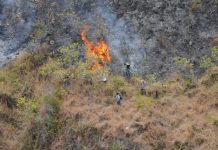Requests for production of documents and special interrogatories in California are the topic of this article. This article is the second in a two part series that will discuss the various discovery methods utilized in litigation in California. The information in this article only applies to unlimited civil cases in which the amount demanded is more than $25,000.
Requests for Production of Documents:
Serving a request for production of documents is an excellent tool that allows any party to a lawsuit to obtain all documents that support the claims or defenses of the opposing party or parties so that they can be reviewed.
In addition to requesting production of documents a party can also demand production and inspection of documents and tangible things, as well as entering onto land for inspection and other purposes.
The rules governing requests for production of documents are found in Code of Civil Procedure § 2031.010, et seq.
The law in California states that a defendant may propound a request for production of documents at any time, however a plaintiff may not do so until at least ten (10) days have passed since service of the summons on the defendant, or the general appearance by the defendant, whichever occurs first. See Code of Civil Procedure § 2031.020.
Requests for production of documents have an important advantage over other discovery methods due to the fact that there is no numerical limit to the number of requests specified in California law. However a party served with excessive requests may seek leave of court to limit the number of requests.
Another advantage of requests for production of documents are that unlike special interrogatories and requests for admission there are no format or content restrictions whatsoever and no restrictions on any preface or instructions that may be included unlike special interrogatories and requests for admission.
The documents request should be limited to any and all documents that might contain relevant information that would assist the requesting party in evaluating the case, preparing for trial, or facilitating a settlement or that might reasonably lead to admissible evidence.
The California courts have ruled that the scope of discovery in California civil litigation is very broad. Any doubts are applied liberally in favor of discovery. And information is considered relevant if it could reasonably assist a party in evaluating case, preparing for trial, or facilitating settlement.
The mere fact that a particular document might not be admissible does not prevent a party from requesting that document on the grounds that information, unless privileged, is discoverable if it might reasonably lead to admissible evidence.
Requests for production and inspection of documents and tangible things are very useful in that they allow a party to review in detail all relevant documents and tangible things that support the opposing party’s claims or defenses.
Special Interrogatories:
Special interrogatories are written questions that are drafted based on a review of a particular case.
Serving special interrogatories is used to require an opposing party to state the facts, witnesses and documents on which their contention or contentions are based so they can be reviewed. Depending on the responses to the first set of special interrogatories your attorney may draft and serve another set of special interrogatories.
The rules governing special interrogatories are found in Code of Civil Procedure § 2030.010, et seq.
The law in California states that a defendant may propound special interrogatories at any time, however a plaintiff may not do so until at least ten (10) days have passed since service of the summons on the defendant, or the general appearance by the defendant, whichever occurs first. See Code of Civil Procedure § 2030.020.
There is a numerical limit of thirty five (35) on the number of special interrogatories. However if a supporting declaration stating that any additional interrogatories are warranted due to the complexity of the case and other certain factors is attached, then any party may propound more additional special interrogatories. See Code of Civil Procedure §§ 2030.030 and 2030.050.
There are certain format restrictions on special interrogatories. No special interrogatory may contain subparts, or a compound, conjunctive or disjunctive question. See Code of Civil Procedure § 2030.060. This means that a special interrogatory cannot contain part a, b, c, etc., nor can it contain a question with more than one part, and it cannot contain the word “and” which is conjunctive, it also cannot contain the word “or” which is disjunctive. Although many special interrogatories do violate these format rules any party using such a format runs the risk of the opposing party objecting on those grounds.
Retaining an attorney that is experienced in litigation is essential as they will analyze the fact pattern of your particular case and will create special interrogatories designed to obtain information on the facts, witnesses and documents that would assist the requesting party in evaluating the case, preparing for trial, or facilitating a settlement or that might reasonably lead to admissible evidence.
Special interrogatories have an advantage over depositions due to the fact that deposition questions may not ask party deponent to state all facts, list all witnesses and identify all documents that support or pertain to particular contention in that party’s pleadings, although that information is discoverable when sought by written interrogatory.
Link to Part 1 of this Article.
Thank you for reading. I hope I could have been educational as I endeavor to provide my knowledge as a free public service. Please note that all the materials and information on this web site are general analyses made available for the public’s general informational purposes only. These analyses are not in any way intended to serve as specific legal advice to be applied in your particular situation. Although I am an attorney, absent a signed retention and engagement letter, I am not your attorney. There are no exceptions to this rule. Moreover, you shall not rely on the information I am providing you, as it is only for your general knowledge and educational purposes, since this information would likely change based on any additional facts. Thus the transmission and receipt of information on this web site by anyone does not form or constitute an attorney-client relationship. My knowledge of laws is limited to California. Anyone receiving any information on this web site should not act upon the information provided without first obtaining the services of professional legal counsel licensed in their respective jurisdiction. Best of luck.
Law Offices of Nathan Mubasher
2621 Green River Rd, Ste 105 PMB 403
Corona, CA 92882
tel 1-800-691-2721 | fax 1-310-356-3660
www.mubasherlaw.com

































